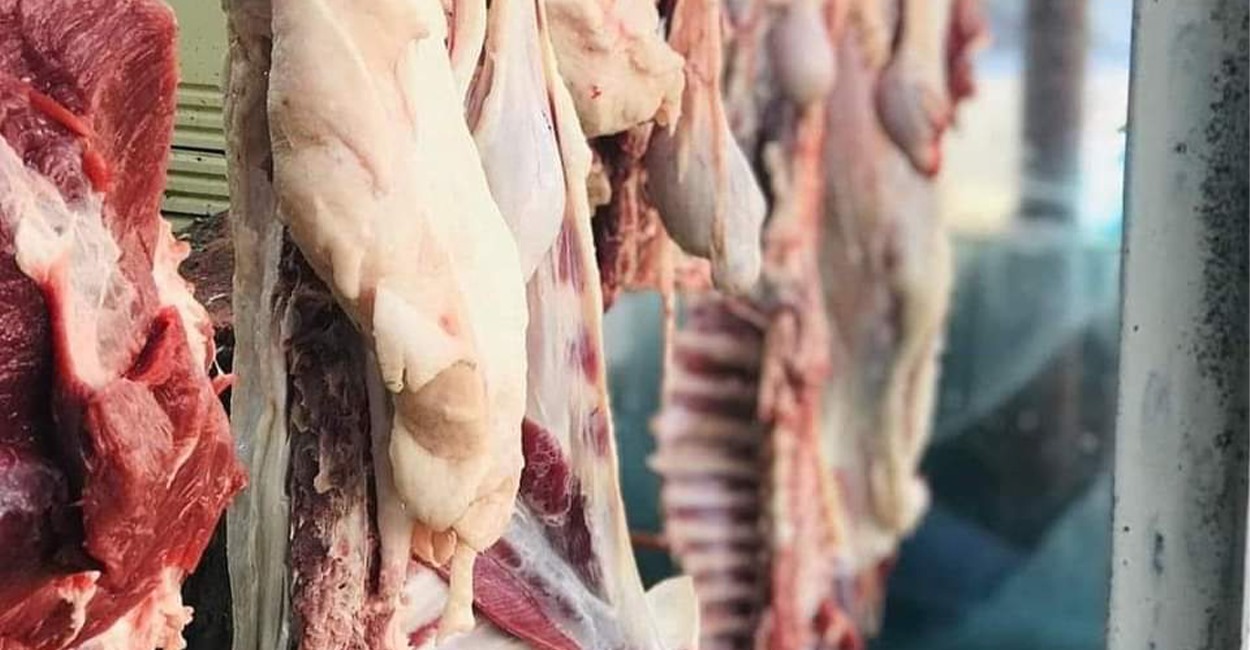Iraqis grapple with soaring meat prices amid smuggling, drought & enforcement absence

Shafaq News/ Red meat prices in Iraq have been on the rise since mid-last year, with expectations reaching 25,000 Iraqi dinars per kilogram during the upcoming holy month of Ramadan.
Traders are taking advantage, pushing prices up.
Qasim Abu Hussein, a butcher from Babel, told Shafaq News Agency that veal sells for 16,000 dinars (12.22$) per kilogram, bone-in meat for 14,000 dinars (10.69$), and lamb for 18,000 to 20,000 dinars (13.75$ - 15.27). He blamed the price increase on higher costs for animal feed and crops.
Um Rahim, a farmer from Al-Diwaniyah, also noted that the hike in livestock prices is due to drought and the lack of natural pastures, which used to provide free animal feed.
"This has led to higher feed prices and overall livestock price increases," she explained.
According to Um Rahim, butchers, buying livestock at high prices, pass the cost to consumers to make a profit.
The Challenge for Livestock Traders
Abu Mahdi, a trader from Al-Diwaniyah, buys and sells livestock in the local market. He agrees with Um Rahim that high livestock prices are mainly due to expensive animal feed.
"Before, we had plenty of alfalfa and clover, but now they're scarce. A bale of alfalfa used to cost 30,000 to 40,000 dinars, now 70,000 to 80,000 dinars," explained Abu Mahdi. "This pushes up calf and cow prices. And sheep owners are taking their flocks to graze in the valleys, causing meat prices to rise," he told Shafaq News Agency.
"Getting fodder is tough now; 400,000 to 500,000 dinars per ton. Alfalfa used to be 40,000 dinars; now it's double that," recounts another seller, Mohsen, from Babil.
"Livestock owners have to sell at high prices because of the lack of grazing areas due to drought," he added.
Smuggling, Price Gouging
Economic expert Omar al-Halboosi blames the soaring meat prices on "increased smuggling of sheep out of Iraq to neighboring countries, reducing the supply in the local market."
"Iraqis consume a lot of meat, and traders exploit this demand to make big profits by hiking prices. The government's failure to control prices adds to the problem," he told Shafaq News Agency.
According to al-Halboosi, rising meat costs have led to "Iraqis cutting back on purchases due to low spending power and the weakening dinar, causing an economic slowdown in Iraqi markets."
Consumer Preferences
Mohammed al-Khazai, spokesperson for the Agriculture Ministry, explained that "Iraqis prefer local meats, which poses a challenge because local production isn't enough to meet demand."
"To address this, the Ministry suspended import licenses early on and made it easier to import meats from various global sources," he added.
"Imported red meats, both beef and lamb, are available at reasonable prices, ranging from 6,000 to 9,000 dinars. However, Iraqi consumers lean towards local meat, driving up demand," Al-Khazai told Shafaq News.
"Iraq is experiencing drought, leading to water scarcity, higher temperatures, and the drying of marshlands. Last year, over 7,000 buffalo died due to these conditions," he added.
Al-Khazai noted that many breeders take their livestock to distant areas with better grazing due to the rainy season, facilitating fattening and breeding.
Regarding the advent of Ramadan, Islam's holy month of fasting, and its impact on prices, he said: "Prices typically rise during Ramadan across Arab and Islamic countries due to increased demand."
"This isn't just about scarcity but also includes market manipulation and other factors," added Al-Khazai, underscoring that "price monitoring isn't the Agriculture Ministry's responsibility; it falls under the Interior Ministry's jurisdiction."
"However, the Agriculture Ministry works to maintain fair prices in local markets," he clarified.
"This issue isn't unique to Iraq but happens in many countries where prices increase due to abnormal demand," argued Al-Khazai.
Global Price Hike
Walid Mohammed Rizouqi, Director General of Livestock Directorate at the Agriculture Ministry, agrees with Al-Khazai on meat prices rising worldwide, not just in Iraq but also in Iran, where they've hit 20,000 dinars per kilogram.
"We've issued import permits for about 65,000 calves, so there's no shortage. But global prices are up. Transport costs are also rising due to Middle East crises," Rizouqi told Shafaq News Agency.
Regarding sheep, Rizouqi said: "Numbers are good, but there's hoarding and speculation. Each player in the supply chain adds a bit to the price, from breeders to butchers. That's the main reason for the hike."
He explained that "while feed prices have dropped from last year, there's still an increase overall. Corn, for example, was 600,000 dinars per ton last year, now it's 350,000 dinars. Bran has also dropped from 600,000 to 400,000 dinars per ton."
"We're growing green fodder, and some farmers even export it. So, it's not about feed scarcity; it's speculation, like what happened with eggs last year due to supply and demand. With Ramadan approaching, hoarding is happening again," added Rizouqi.
"The Ministry allows live animal imports for slaughter, but even small traders blame the global price rise," he stressed.
Continued Price Rise
Manar Al-Obaidi, head of the Iraq Future Foundation, highlighted a persistent global inflation trend in Iraq and Iran.
He noted that inflation hit 4.5% annually in Iraq, with a significant spike in December 2023, despite efforts by the Central Bank to curb it.
Al-Obaidi explained that various internal and external factors drive up prices, especially for food items.
Meat and fish prices soared by over 20% in many governorates last year, and this trend is expected to continue due to meat shortages, rising global transportation costs, and limited meat supply during certain times of the year.
Major Supply Initiatives
Iraqi Trade Minister Atheer Al-Ghareeri announced significant efforts to boost meat and egg supplies before Ramadan.
These initiatives involve launching campaigns to provide competitive-priced meat, poultry, and eggs across all governorates, alongside opening new sales outlets during Ramadan to stabilize and manage food prices. Mobile teams will sell essential items at affordable rates in cities and districts starting from March 1. Al-Ghareeri emphasized strict monitoring and enforcement actions against price manipulation during Ramadan.





